Summer with the College of Arts & Sciences—Enjoy our Parks | Fill some Reqs—includes courses that can apply toward Ohio University’s general education Tier II requirements in Natural Sciences.
Check the Registrar’s summer course offerings site for up-to-the-minute course availability—both online and on campus.
ANTH 2010 Introduction to Biological Anthropology (2NS)
This course covers evolutionary theory, primates, the fossil record of human evolution, the mechanics of evolution, and human variation. Taught by Dr. Sabrina Curran, Visiting Assistant Professor of Anthropology, this course is part of the Knowing the Future theme, the Making and Breaking the Law theme, and the Becoming Human theme.
BIOL 1010 Principles of Biology (2NS)
This course is designed for non-science majors. It covers principles of cell biology, physiology, ecology, genetics, and evolution. Taught by Dr. Allan Showalter, Professor of Environmental & Plant Biology, this course is part of the Becoming Human theme and the War and Peace theme.
BIOS 1000 Animal Diversity (2NS)
For non-majors, this course is a broad survey of all of the major groups of animals, featuring aspects of the biology, reproduction, ecology, and evolution of the animal phyla. Taught by Molly Gurien, Biological Sciences Instructor, this course is part of the Becoming Human theme.
BIOS 1030 Human Biology I: Basic Principles (2NS)
This online course for non-majors covers humans as biological organisms: our origins, ecology, and inheritance, and functioning of our body systems. Taught by Karen Mammone, Biological Sciences Instructor, this course is part of the Food Studies theme, the Becoming Human theme, and the Making and Breaking the Law theme. It is also taught on the Athens campus by Dr. Scoot Moody, Professor Emeritus.
BIOS 1310 Principles of Human Anatomy and Physiology (2NS)
This course is an introduction to the structure and function of the human body in the study of the digestive, urinary, reproductive, cardiovascular, lymphatic, respiratory, endocrine systems, and acid-base balance. It is taught by Evan Daugherty, a visiting faculty member in Biological Sciences.
BIOS 1700 Biological Sciences I: Molecules and Cells (2NS)
This cellular and molecular biology course is designed for science majors and pre-professional students. It includes an introduction to the chemistry of life, cell structure and function, and the principles of inheritance. Taught by Steven Edinger, Biological Sciences Lecturer, this course is part of the the Making and Breaking the Law theme.
BIOS 1710 Biological Sciences II: Ecology, Evolution, Animal Body Systems (2NS)
Taught in the second summer session by Edinger, this course is an introduction to multi-cellular life, organ systems, anatomy, physiology, and animal development, with emphasis on comparative strategies within the animal kingdom.
BIOS 2060 Drugs and the Brain (2NS)
This online course is for non-majors. The brain creates behavior in part via multiple chemical messenger (neurotransmitter) systems that serve specific functions such as mood alteration and arousal. Recreational and psychoactive medical drugs work by mimicking these natural messenger systems. This course reviews nervous system structure and chemical signaling pathways and surveys the major classes of psychoactive drugs, including alcohol, opium, cocaine, amphetamines, nicotine, caffeine, marijuana, the hallucinogens, and the antidepressants. Taught by Dr. Daewoo Lee, his course if part of the Making and Breaking the Law theme.
BIOS 2750 Ecology in the 21st Century (2NS)
This course introduces the natural environment and relations of organisms to one another and their surroundings. Individual, population, and community and global dynamics are considered in natural and human-influenced environments to improve ecological literacy about how the natural world works. Taught by Rose Isgrigg, Biological Sciences Instructor, this course is part of the Sustainability Studies theme and the Wealth and Poverty theme.
CHEM 1210 Principles of Chemistry I (2NS)
This introduction to chemistry features study of atomic and molecular structure, periodic table, states of matter gases, solutions, energy changes, acids, bases, equilibrium, and nuclear chemistry. Taught by Cory Beck, Assistant Professor of Chemistry & Biochemistry, this course is part of the War and Peace theme and the Sustainability Studies theme.
CHEM 1220 Principles of Chemistry II (2NS)
Offered in the second summer session, this course surveys organic chemistry and biochemistry and their impact upon daily existence. Taught by Dr. Jules Guei, Assistant Professor of Chemistry & Biochemistry, this course is part of the War and Peace theme.
CHEM 1500 Fundamentals of Chemistry I (2NS)
This general course in fundamental chemical principles covers atomic structure, periodic classification, bonding, mole concept, stoichiometry with problem solving, thermochemistry, equilibrium, and gases. Recommended for majors in chemistry, engineering, biological sciences, plant biology, clinical laboratory science, geological sciences, secondary education (B.S.Ed. in biological sciences, chemistry, physics, and integrated science), and pre-professional (biological science) areas. Sections are taught by Dr. Lauren McMills, Assistant Professor of Chemistry & Biochemistry, and Dr. Shadrick Paris, Assistant Professor.
CHEM 1520 Fundamentals of Chemistry II (2NS)
Offered in the second summer session, this course follows CHEM 1500 with emphasis on intermolecular forces and phase changes, solutions and colligative properties, chemical kinetics, chemical equilibrium, acid-base equilibria, thermodynamics (entropy and free energy), electrochemistry, descriptive chemistry, and nuclear chemistry. The course is taught by Dr. Rebecca Barlag, Assistant Professor of Chemistry & Biochemistry.
GEOG 1100 Physical Geography (2NS)
This course is an introduction to the earth’s dynamic, natural environmental systems, including weather and climate, landforms, soils, ecosystems, and biomes. This course is taught by Dr. Dorothy Sack, Professor of Geography.
GEOL 1400 Dinosaurs and the Mesozoic (2NS)
This online course includes a general introduction to dinosaurs including their classification, anatomy, physiology, and behavior. Three major groups of dinosaurs will be discussed in detail, the Ornithischia, Sauropoda, and Therapoda in addition to other major components of Mesozoic ecosystems including marine reptiles, pterosaurs, mammals, insects, and plants. The course concludes with an overview of the evolution of terrestrial and marine ecosystems during the Mesozoic and the causes and effects of the end Cretaceous mass extinction. The online course is taught by Dr. Dan Hembree, Associate Professor of Geological Sciences, and is part of the Knowing the Future theme.
GEOL 2210 Earth and Life History (2NS)
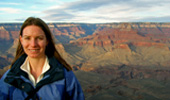 This online course explores the 4.5 billion-year history of the interaction between life and the environment. Topics include the origin of the Earth, the origin and development of life, the origin and evolution of the continents, the history of the atmosphere and ocean, catastrophic extinctions, and the impact of human evolution. The course is taught by Dr. Alicia Stigall, Associate Professor of Geological Sciences. The course is part of the Ohio: Sense of Place theme, the Knowing the Future theme, and the Becoming Human theme.
This online course explores the 4.5 billion-year history of the interaction between life and the environment. Topics include the origin of the Earth, the origin and development of life, the origin and evolution of the continents, the history of the atmosphere and ocean, catastrophic extinctions, and the impact of human evolution. The course is taught by Dr. Alicia Stigall, Associate Professor of Geological Sciences. The course is part of the Ohio: Sense of Place theme, the Knowing the Future theme, and the Becoming Human theme.
PBIO 1000 Plants and the Global Environment (2NS)
 This examines the importance of plants in providing global resources for humans and the impact of human activity on the sustainability of these resources. The course places a particular focus on the importance of climate and energy policy as they relate to our uses of plants and the impact that changing climate would be expected to have on plants. Taught by Dr. Art Trese, Associate Professor of Environmental & Plant Biology, this course is part of the Food Studies theme, the Sustainability Studies theme, the Wealth and Poverty theme, and the Making and Breaking the Law theme.
This examines the importance of plants in providing global resources for humans and the impact of human activity on the sustainability of these resources. The course places a particular focus on the importance of climate and energy policy as they relate to our uses of plants and the impact that changing climate would be expected to have on plants. Taught by Dr. Art Trese, Associate Professor of Environmental & Plant Biology, this course is part of the Food Studies theme, the Sustainability Studies theme, the Wealth and Poverty theme, and the Making and Breaking the Law theme.
PBIO 1090 Americans and Their Forests: Ecology, Conservation and History (2NS)
This online course provides an understanding of modern forests encompassing both recent and long-term effects arising from natural and human causes. The pattern and character of forest utilization are interpreted in terms of varied cultural experiences in different regions and times. Taught by Dr. Glenn Matlack, Associate Professor of Environmental & Plant Biology, this course is part of the Ohio: Sense of Place theme, the Knowing the Future theme, the Sustainability Studies theme, the Making and Breaking the Law theme, the Becoming Human theme, and the Fire to iPhone theme.
PBIO 2470 Biomes of the World (2NS)
This online course couples a broad characterization of each ecosystem globally with details on representative protected areas for each biome in North America. Conservation issues, human impacts, and products for human use, are discussed throughout the course. Taught by Dr. Harvey Ballard, Associate Professor of Environmental & Plant Biology, this course is part of the Wealth and Poverty theme.
PHYS 2001 Introduction to Physics (2NS)
This first course in physics is open to students from all areas. Students should have a background in algebra, trigonometry and geometry, but no calculus is required. It is recommended for students in liberal arts, architecture, industrial technology, geological sciences, plant biology, and pre-medicine. Taught by Dr. Michael Guenther, Visiting Assistant Professor of Physics & Astronomy, this course is part of the Knowing the Future theme and the War and Peace theme.
PHYS 2002 Introduction to Physics (2NS)
This course is a continuation of PHYS 2001 and is open to students from all areas. It is recommended for students in liberal arts, architecture, industrial technology, geological sciences, plant biology, and premedicine. Includes electricity, magnetism, waves, sound, light, relativity, quantum, atomic, and nuclear physics. Taught by Dr. Mark Lucas, Associate Professor of Physics & Astronomy, this course is part of the Knowing the Future theme.
PHYS 2051 General Physics (2NS)
This course includes classical physics with calculus and vectors, Newtonian mechanics, rotational dynamics, gravitation, oscillations, fluids, and thermodynamics. Taught by Stephen Goss, Director of Laboratory Facilities in Physics & Astronomy, this course is part of the Knowing the Future theme and the War and Peace theme.
PBIO 2470 Biomes of the World (2NS)
This online course couples a broad characterization of each ecosystem globally with details on representative protected areas for each biome in North America. Conservation issues, human impacts, and products for human use, are discussed throughout the course. Taught by Dr. Harvey Ballard, Associate Professor of Environmental & Plant Biology, this course is part of the Wealth and Poverty theme.


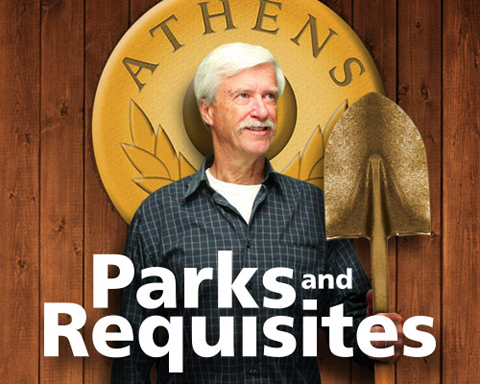
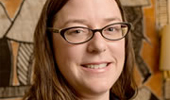


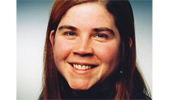



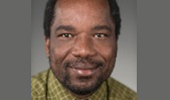





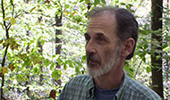
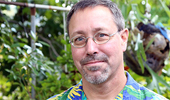


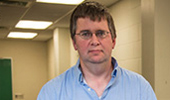

















Comments